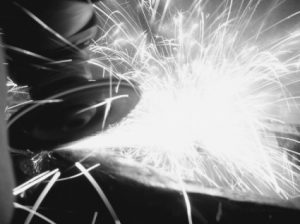A brake arcing machine manufacturer can be held accountable for toxic asbestos exposure to a mechanic, even though its product did not actually contain asbestos. 
These machines were used to grind asbestos-laden brake linings in auto mechanic shops throughout the country for decades.
Defendant in the California case of Rondon v. Hennessy Industries, Inc. argued that not only did its products not contain asbestos, but its machines were not designed to be used exclusively with products that contained asbestos. There was in fact ample evidence its machines were used on non-asbestos brake pads. It was based on this the trial court dismissed. But plaintiff appealed, and now the California Court of Appeal, First Appellate District, Division Four, has reversed, finding this “exclusive use” standard the defendant used should not have been used. The proper test was the “inevitable use” test, in which it is determined the machines would inevitably be used in a way that exposed workers to asbestos dust without adequate warning or protection.
According to court records, plaintiff developed mesothelioma after years of working as a mechanic and being exposed to asbestos dust while grinding brake linings. He alleged it was the brake arcing machines that actually released the dust into the air as he worked from 1965 to 1988. He alleged the manufacturer of these machines was liable under theories of both negligence and strict liability because, he argued, these machines had no other function than to grind these asbestos-filled brake linings. Continue reading
 Mesothelioma Lawyers Blog
Mesothelioma Lawyers Blog

